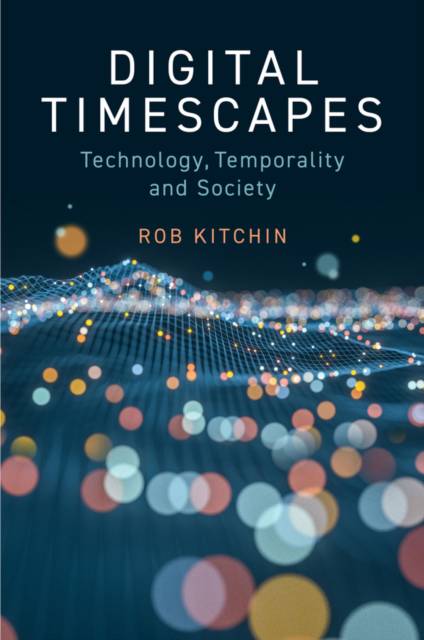
Bedankt voor het vertrouwen het afgelopen jaar! Om jou te bedanken bieden we GRATIS verzending (in België) aan op alles gedurende de hele maand januari.
- Afhalen na 1 uur in een winkel met voorraad
- In januari gratis thuislevering in België
- Ruim aanbod met 7 miljoen producten
Bedankt voor het vertrouwen het afgelopen jaar! Om jou te bedanken bieden we GRATIS verzending (in België) aan op alles gedurende de hele maand januari.
- Afhalen na 1 uur in een winkel met voorraad
- In januari gratis thuislevering in België
- Ruim aanbod met 7 miljoen producten
Zoeken
€ 30,95
+ 61 punten
Omschrijving
Digital technologies are having a profound effect on the temporalities of individuals, households and organisations. We now expect to be able to instantly source a vast array of information at any time and from anywhere, as well as buy goods with the click of a button and have them delivered within hours, while time management apps and locative media have altered how everyday scheduling and mobility unfolds.
Digital Timescapes makes the case that we have transitioned to an era where the production and experience of time is qualitatively different to the pre-digital era. Rob Kitchin provides a synoptic account of this transition, charting how digital technologies, in a wide range of manifestations, are reconfiguring everyday temporalities. Attention is focused on the temporalities associated with six sets of everyday practices: history and memory; politics and policy; governance and governmentality; mobility and logistics; planning and development; and work and labour. Critically, how to challenge and reorder digitally mediated temporal power is examined through the development of an ethics of temporal care and temporal justice.
Conceptually and empirically rich, Digital Timescapes is an essential guide to our new temporal regime. It will be of interest to students and scholars of Media Studies, Science and Technology Studies, Sociology, Anthropology, Human Geography, and History and Memory Studies, as well as those who are interested in how digital technologies are transforming society.
Digital Timescapes makes the case that we have transitioned to an era where the production and experience of time is qualitatively different to the pre-digital era. Rob Kitchin provides a synoptic account of this transition, charting how digital technologies, in a wide range of manifestations, are reconfiguring everyday temporalities. Attention is focused on the temporalities associated with six sets of everyday practices: history and memory; politics and policy; governance and governmentality; mobility and logistics; planning and development; and work and labour. Critically, how to challenge and reorder digitally mediated temporal power is examined through the development of an ethics of temporal care and temporal justice.
Conceptually and empirically rich, Digital Timescapes is an essential guide to our new temporal regime. It will be of interest to students and scholars of Media Studies, Science and Technology Studies, Sociology, Anthropology, Human Geography, and History and Memory Studies, as well as those who are interested in how digital technologies are transforming society.
Specificaties
Betrokkenen
- Auteur(s):
- Uitgeverij:
Inhoud
- Aantal bladzijden:
- 232
- Taal:
- Engels
Eigenschappen
- Productcode (EAN):
- 9781509556410
- Verschijningsdatum:
- 3/04/2023
- Uitvoering:
- Paperback
- Formaat:
- Trade paperback (VS)
- Afmetingen:
- 157 mm x 221 mm
- Gewicht:
- 362 g

Alleen bij Standaard Boekhandel
+ 61 punten op je klantenkaart van Standaard Boekhandel
Beoordelingen
We publiceren alleen reviews die voldoen aan de voorwaarden voor reviews. Bekijk onze voorwaarden voor reviews.









